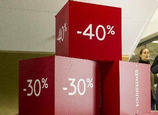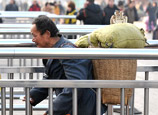
Shen Danyang, spokesman for the Ministry of Commerce, said last year that the notorious markets list is not objective because it "uses ambiguous words, such as 'reportedly' to describe listed markets and does not give evidence or analysis".
The 2012 list has 18 websites and 17 physical markets, eight of them in China. Sweden, Russia, Canada and Mexico each have three, while Ukraine and Bulgaria are both home to two.
Two Chinese online giants - shopping portal Taobao and search engine Sogou - were removed from the most recent list because they "made notable efforts to work with rights holders" to decrease infringing content, according to a statement from the USTR.
Four other physical market operations in China on the list are the computer mall chain Buynow PC Malls, the Fuan Footwear and Accessory Market in Putian, Silk Market in Beijing and the small commodities markets in Yiwu.
Three Chinese websites - Xunlei, Gougou and Paipai - are listed as notorious markets for "facilitating downloading and distribution of pirated music and movies" or selling "pirated and counterfeit goods" online.
Liu Luyu, a senior researcher at the Shenzhen-based China Development Institute, said the list "basically tells the truth".
"It's good for some companies, urging them to pay more attention to the protection of intellectual property rights," he said.















 This group of photos engrave the "past" left far behind us. For some, we may not even have chance to say goodbye.
This group of photos engrave the "past" left far behind us. For some, we may not even have chance to say goodbye.


![]()
